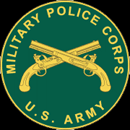|
RESTORING ORDER IN IRAQ
 Now that the hostilities are nearing an end in Iraq, the combat
veterans of the US Army and US Marine Corps are now being asked to take on police duties as looting and other forms of lawlessness engulf many of the cities. How can law and order be restored after the war ends? Now that the hostilities are nearing an end in Iraq, the combat
veterans of the US Army and US Marine Corps are now being asked to take on police duties as looting and other forms of lawlessness engulf many of the cities. How can law and order be restored after the war ends?
The first problem will be to restore at least a perception of law and order. Curfews during the hours of darkness is an obvious requirement. That being done, I know that the US Army will bring
in trained units of Military Police to break down the cities into manageable areas for policing.
When I attended the Provost Marshal General’s School in Fort Gordon, Georgia, I was trained in
the Uniform Code of Military Justice (UCMJ). The difference in military police and civilian police here in the USA creates specific constitutional problems of jurisdiction. However, in the
aftermath of the War in Iraq, our military police units will be very effective in restoring law to Iraq.
Why do I say that? First, the military police have the very distinct advantage of having the
training and know-how to bring effective policing to a community without a police force. They are an armed and uniformed presence readily able to use all force necessary to effect arrests.
Second, they also have authority over the military troops in the city. A civilian police agency would not have that authority. The possibility of a serious conflict between civilian police and
troops requires some time-honored techniques to prevent such problems from developing.
How can we establish the “precincts” or geographical areas of responsibility of the military police?
Can we use well-established concepts of community policing to create those areas? Any consideration of those questions requires an examination of the religious and political realities that
exist in Iraq at this moment in time.
Community policing in Iraq would require at least an understanding of Islamic community
leadership. Each area of a city has Islamic religious leaders. We all know that there are different branches of Islam. The minority Shi’ite branch of Islam is primarily in Iraq and Iran. The Sunni
Islamic branch dominates many other areas of the Middle East. Knowing the terminology of both branches is a must for the military police that hope to reestablish order quickly to Iraq.
Who are the “leaders” of the community who have the moral authority needed for recognition by the Iraqi People? Also, what other “leaders” can assist the military police? In the Shi’ite Branch
of Islam the highest ranking religious leader is called the “Ayatollah”. There is also the “Imam” who is the charismatic religious leader of the community. During the looting of Badgad and other
cities, the local Imams or prayer leaders appealed from the minarets for the looting to stop. Much of the loot was taken to the mosques for safekeeping. The moral authority of the Imams can be
an important foundation upon which to rebuild civil authority in Iraq.
Can we establish our military police “precincts” using the same geographic areas of the local
mosque as a community-policing model? If so, can an effective community-policing model be developed that brings the moral authority of the Islamic leaders into that model? Without the
assistance and trust of local religious and political leaders, the military police would be considered outsiders with little hope for success.
Using such a community policing model, we could then train a new police force of Iraqis in each of the cities drawing from the local knowledge and community contacts. A locally based police
force would have the best chance of establishing rapport with the greater community. Bringing outsiders as police officers into a community would not have the same advantages.
Those newly trained Iraqi police officers could patrol their “precincts” with the US Army Military Police together. This would enable both officers to have the advantage of bi-lingual
communication and both officers could better interact with both the civilian and military personnel who are need of their services.
These measures would be just the first steps needed to begin the process of restoring civil authority and law to Iraq. But they would seem to be an obvious beginning.
Copyright © 2003 Edward D. Reuss
CLICK HERE FOR MORE STORIES
|

